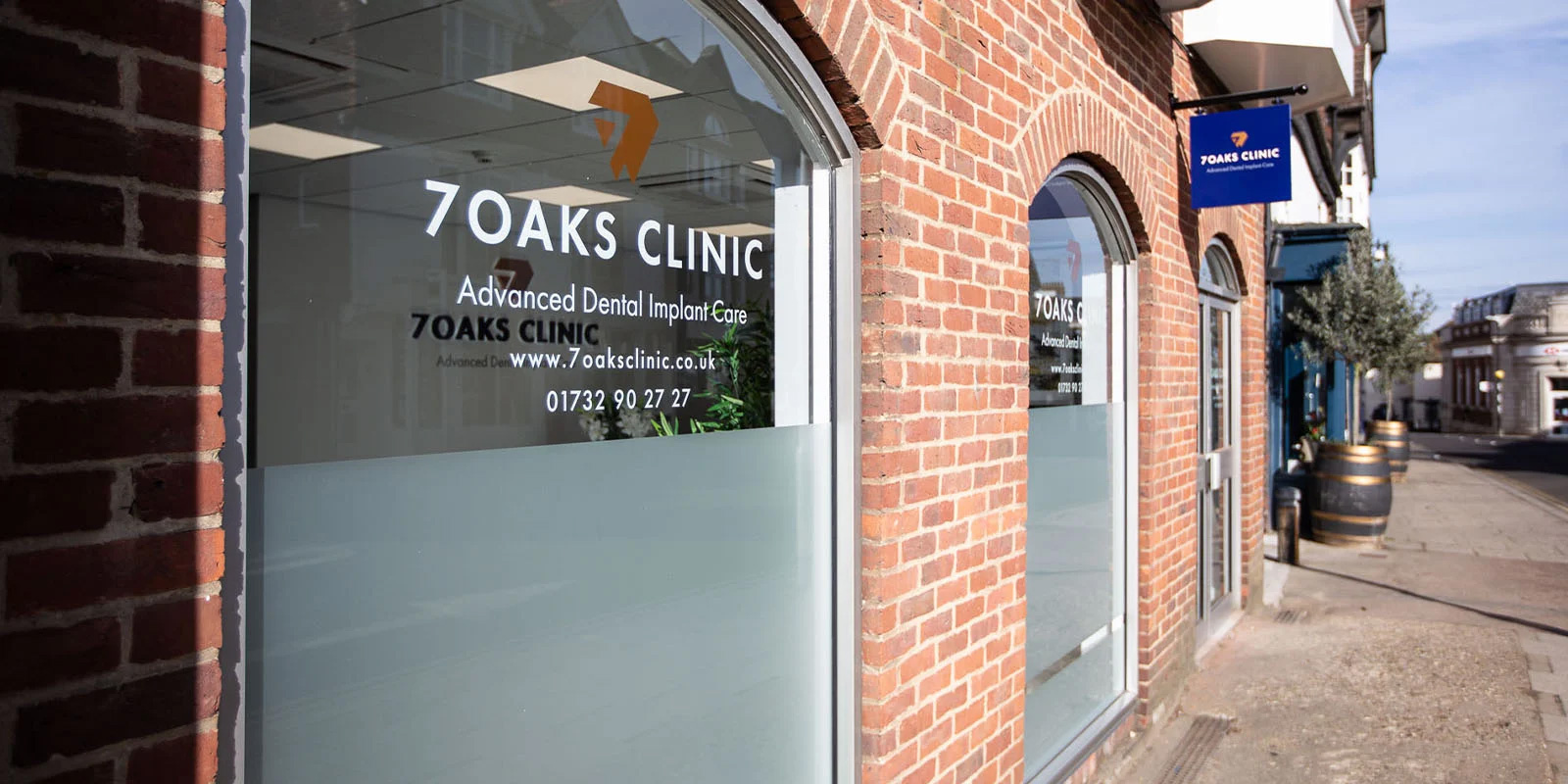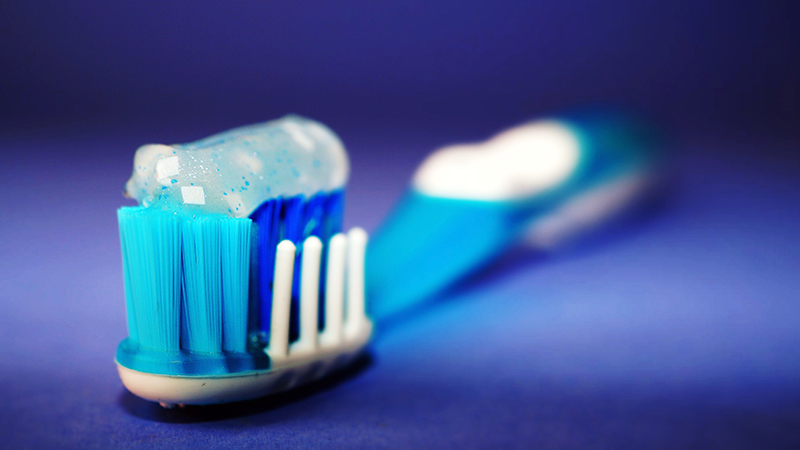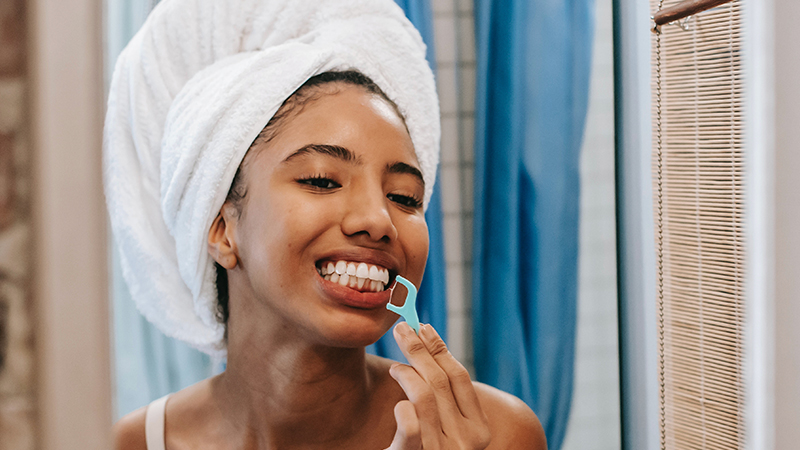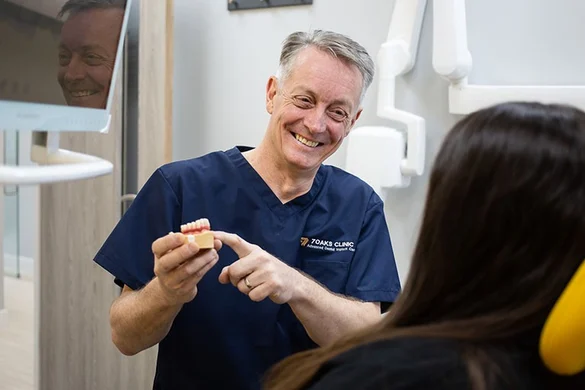
7oaks Clinic Blog features news and industry insight around dental implants and dental implant technology

Published by 7oaksclinic blog on 05 January 2022 1:34 am
Whilst our primary service at 7oaks Clinic is the provision of affordable dental implants, we of course still strongly advocate for proper tooth care, which is the key preventative measure for the necessity of the treatment as a result of gum disease or tooth decay. In this article, we share 5 Top Tips for Proper Tooth Care, going beyond bushing, with insight from our team of Dental Experts at 7oaks Clinic.
This is the rather obvious one, but it is fundamental to good oral health. Brush your teeth with fluoride toothpaste twice a day for approximately 2 minutes to help keep your teeth and mouth healthy.
This helps stop the build-up of Plaque, which is a film of bacteria that coats your teeth if you don’t brush them properly. It contributes to gum disease and tooth decay, so make sure you try to make sure you brush every surface of all your teeth. Whether you brush with a manual or electric toothbrush, be sure to brush your teeth last thing at night before you go to bed and on 1 other occasion every day.

Did you know, there’s even an app to help with this? “Brush DJ” is available on the NHS Digital Apps Library, and it plays 2 minutes of your music so you brush your teeth for the right amount of time.
It’s important to use a toothpaste with the right concentration of fluoride.
According to the NHS:

Your dentist may advise you or your child to use a toothpaste with a higher concentration of fluoride, if you need it.
After brushing, spit out any excess toothpaste, but don’t rinse your mouth immediately after brushing, as it’ll wash away the concentrated fluoride in the remaining toothpaste, which dilutes it and reduces its preventative effects.
Dental experts recommend flossing. Flossing isn’t just for dislodging food wedged between your teeth, studies have shown that regular flossing may also reduce gum disease and bad breath by removing plaque that forms along the gum line.
Whilst many people choose to floss after brushing, it’s actually best to floss before brushing your teeth.
To do this, it is recommended that you take 12 to 18 inches (30 to 45cm) of floss or dental tape and grasp it so you have around 2-3 inches of floss pulled taut between your hands. Slip the floss or dental tape between the teeth and into the area between your teeth and gums, as far as it’ll go. Floss with 8 to 10 strokes, up and down between each tooth, to dislodge food and plaque, then continue with your normal brushing routine.

The NHS has some top tips on flossing, including using a gentle “rocking” motion to guide the floss between your teeth, rather than snapping the floss into the gums; then, when the floss reaches your gumline, curve it into a C-shape against a tooth until you feel resistance.
They also recommend that when flossing, you try to keep to a regular pattern, starting at the top and working from left to right, then moving to the bottom and again working from the left to right. This way you’re less likely to miss any teeth.
In January, people often focus on having a healthy lifestyle, including everything from exercising, to eating well, to not smoking and limiting your alcohol and sugar intake. Whilst this is good for your whole body, it also helps form part of proper dental care for your teeth, gums and mouth.
One key to a healthy diet and for healthier teeth is the reduction of sugar, particularly what experts call ‘free sugar’ (or sugar which isn’t naturally occurring in the food – Sugar found naturally in milk, fruit and vegetables does not count as ‘free sugar’).

Limiting the amount of sugar you eat and drink is vitally important in preventing tooth decay. Sugars can be avoided by reducing intake of foods and drinks such as sweets, chocolate, cakes and biscuits, sugary drinks (including soft drinks, fizzy drinks, milky drinks with added sugar, and alcohol) fruit juice (including unsweetened fresh fruit juice and smoothies), sugary breakfast cereals, jams, marmalades, honey and syrups, ice cream and sorbets, dried fruit or fruit in syrup, syrups and sweet sauces.
If you do consume a diet high in sugar, points 1-3 above are even more important in combating tooth decay.
It is important to have regular check-ups with your dentist – putting off going for check-ups may mean problems go undetected and therefore untreated. If problems aren’t treated, they may lead to damage that’s harder to repair, especially from gum disease and loss of teeth.

The NHS highlight why you need dental check-ups:
“A check-up allows your dentist to see if you have any dental problems and helps you keep your mouth healthy. Leaving problems untreated could make them more difficult to treat in the future, so it’s best to deal with problems early, or, if possible, prevent them altogether.”
In addition, your dentist may refer you to us for Dental Implant treatment should work be required to solve issues with your teeth caused by tooth decay and gum disease.

Whilst we hope this article helps inspire you to adapt your tooth care regime, if these top tips aren’t adhered to, it is likely you will need restorative services from 7Oaks Clinic.
Our treatments are affordable and you can read our patient stories to see some examples of patients who have had dental implants to rectify issues caused by poor dental hygeine.